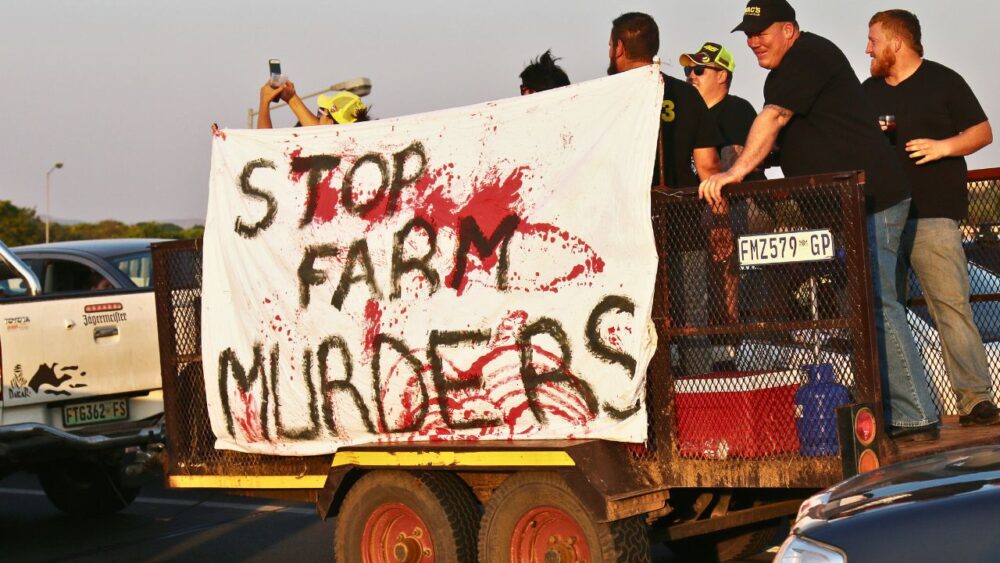The Trump administration welcomed the first group of Afrikaner refugees from South Africa to the United States earlier this week.
Fifty-nine Afrikaners, descendants of Dutch and French settlers, arrived at Dulles International Airport in Virginia carrying small American flags, some barefoot, marking the start of a new life far from the escalating threats in their home country.
“The United States cannot support the government of South Africa’s commission of rights violations in its country or its ‘undermining United States foreign policy, which poses national security threats to our Nation, our allies, our African partners, and our interests,” Trump wrote in an executive order published in February titled “Addressing Egregious Actions of The Republic of South Africa.”
Deputy Secretary of State Christopher Landau greeted the group directly at the airport, applauding their tenacity of the refugees.
“Today, the United States sends a clear message, in alignment with the administration’s America First foreign policy agenda, that America will take action to protect victims of racial discrimination. We stand with these refugees as they build a better future for themselves and their children in the United States,” said Tammy Bruce, U.S. Department of State Spokesperson, via an official statement.
“No one should have to fear having their property seized without compensation or becoming the victim of violent attacks because of their ethnicity. In the coming months, we will continue to welcome more Afrikaner refugees and help them rebuild their lives in our great country,” Bruce added.
The move comes from a directive by Secretary of State Marco Rubio and fulfills President Trump’s commitment to prioritize the vulnerable population of white South African farmers facing targeted violence and systemic political neglect back home.
For years, conservative analysts have raised concerns about rising violence against white farmers in South Africa, which has some of the world’s highest rates of violent crime in the world. Many Afrikaner families say they’ve been terrorized on rural farmland with little to no response from law enforcement, while controversial land-retaking policies, some proposed without any compensation for the owners, have allegedly intensified fear among white landowners.
South African President Cyril Ramaphosa and others have essentially laughed off these reports as “misinformation,” framing them as pushback against fringe ideologies.
Ramaphosa also dismissed the 59 white South Africans who recently relocated to America, calling them “cowards,” adding that he believes “they’ll be back before long,” reported the BBC.
However, some could argue that the traumatic experiences of Afrikaner families contradict the South African government’s dismissive stance.
In March, Elon Musk shared a video of an aerial shot of a road in South Africa. The road was adorned with tall white crosses on each side, marking every murder of a white farmer in South Africa with the original caption reading, “This resembles genocide.” The video is 1 minute and 16 seconds long, and the helicopter barely catches the total amount of memorial crosses in sight – hundreds.
So many crosses https://t.co/rTMTc2uGun
— gorklon rust (@elonmusk) March 8, 2025
While the Trump administration’s decision has been hailed by many as long overdue, others, including Democratic lawmakers and some progressive institutions, have questioned the prioritization of this group of refugees.
The Episcopal Church’s migration services even refused federal requests to help resettle the Afrikaners, citing concerns about “racial justice.”
However, all 59 Afrikaners who arrived in America this week underwent full and rigorous vetting, including background checks, health screenings, and cultural assessment tests.


